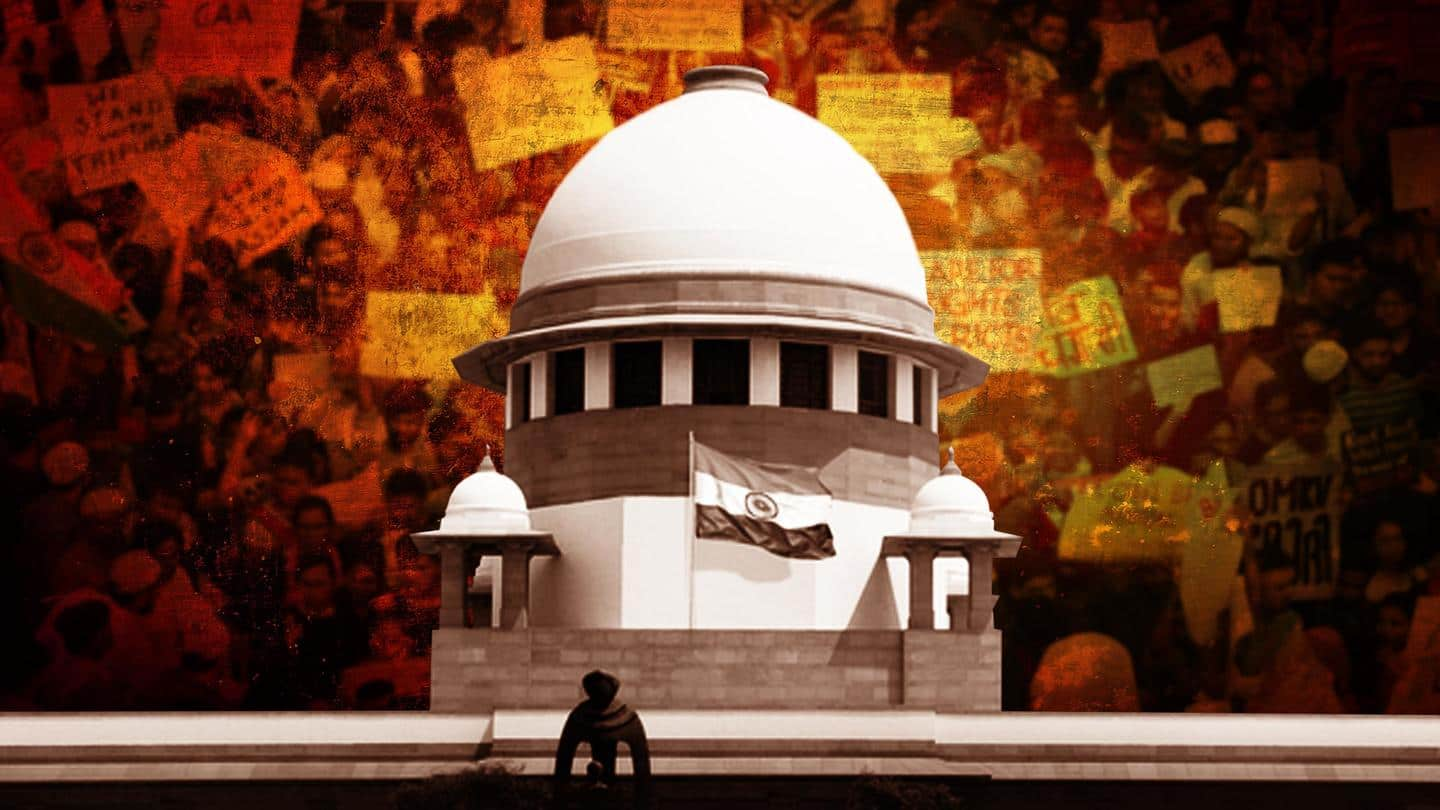
Supreme Court to hear pleas challenging CAA on Monday
What's the story
The Supreme Court will likely hear a batch of petitions contesting the Citizenship (Amendment) Act (CAA), 2019, on Monday, according to Live Law.
A bench led by Chief Justice of India UU Lalit would consider at least 220 cases contesting the CAA, it said.
The last hearing in the pleas against the CAA was held in the top court in June last year.
Context
Why does this story matter?
The development comes nearly a month after the Ministry of Home Affairs (MHA)—led by Bharatiya Janata Party (BJP) leader and Home Minister Amit Shah—sought an extension fifth time to frame the rules.
In 2020, the home ministry had said the process was getting delayed due to the COVID-19 pandemic and that it would be undertaken after the vaccination drive begins.
Details
Who had filed the petitions?
The pleas were filed by some political parties and non-governmental organizations (NGOs) before the top court challenging the Act.
The petitioners included the Kerala-based political party Indian Union Muslim League (IUML), Trinamool Congress MP Mahua Moitra, Congress leader and former Union minister Jairam Ramesh, All India Majlis-e-Ittehadul Muslimeen (AIMIM), NGOs Rihai Manch and Citizens Against Hate, Assam Advocates Association, and law students among others.
Supreme Court
Important development of the court proceedings
As per India Today, a bench chaired by former Chief Justice SA Bobde issued a notice in the petitions in January 2020.
Notably, the central government said in its affidavit before the top court that the CAA does not violate any existing rights.
It was also maintained that the CAA does not attempt to harm any Indian citizen's legal, democratic, or secular rights.
Details
What are the CAA provisions?
CAA provides members of six minority religious communities—Hindu, Sikh, Buddhist, Jain, Parsi, and Christian—from Pakistan, Afghanistan, and Bangladesh who visited India before December 31, 2014, eligible for Indian citizenship.
The MHA previously said that the citizenship process will be completed fully online.
The statute exempts members of these six categories from punishment under the Foreigners Act of 1946 and the Passport Act of 1920.
Protests
The proposal triggers protests in 2019-20
The CAA instigated violent protests and riots across India between December 2019 and March 2020, killing 83 people in Assam, Delhi, Karnataka, Meghalaya, and Uttar Pradesh.
Residents argued that permitting foreign tourists would imperil the sensitive demographics of border communities.
In February 2020, anti-CAA protests shook Delhi as a days-long communal conflict killed over 50 people and wounded hundreds more.